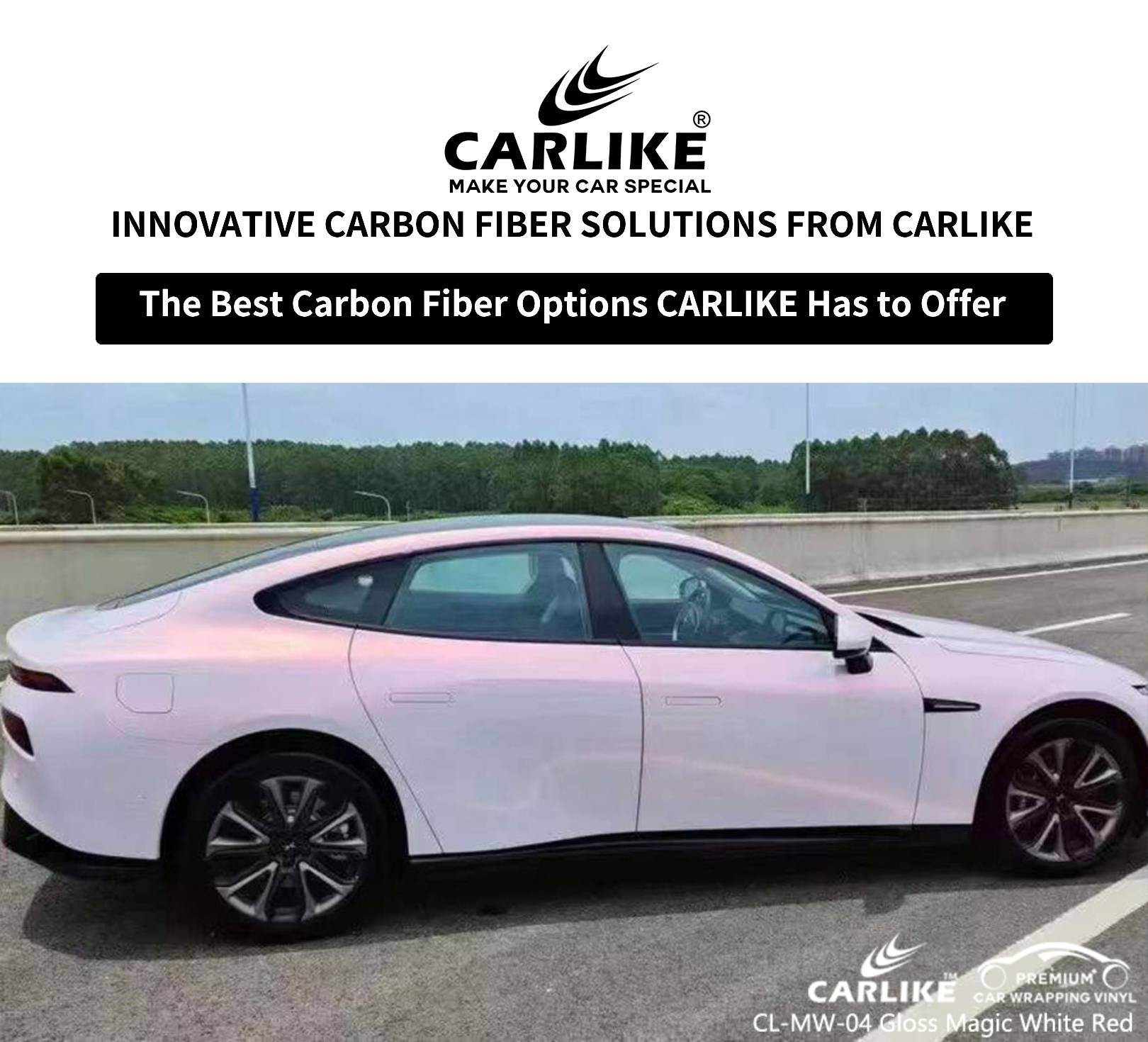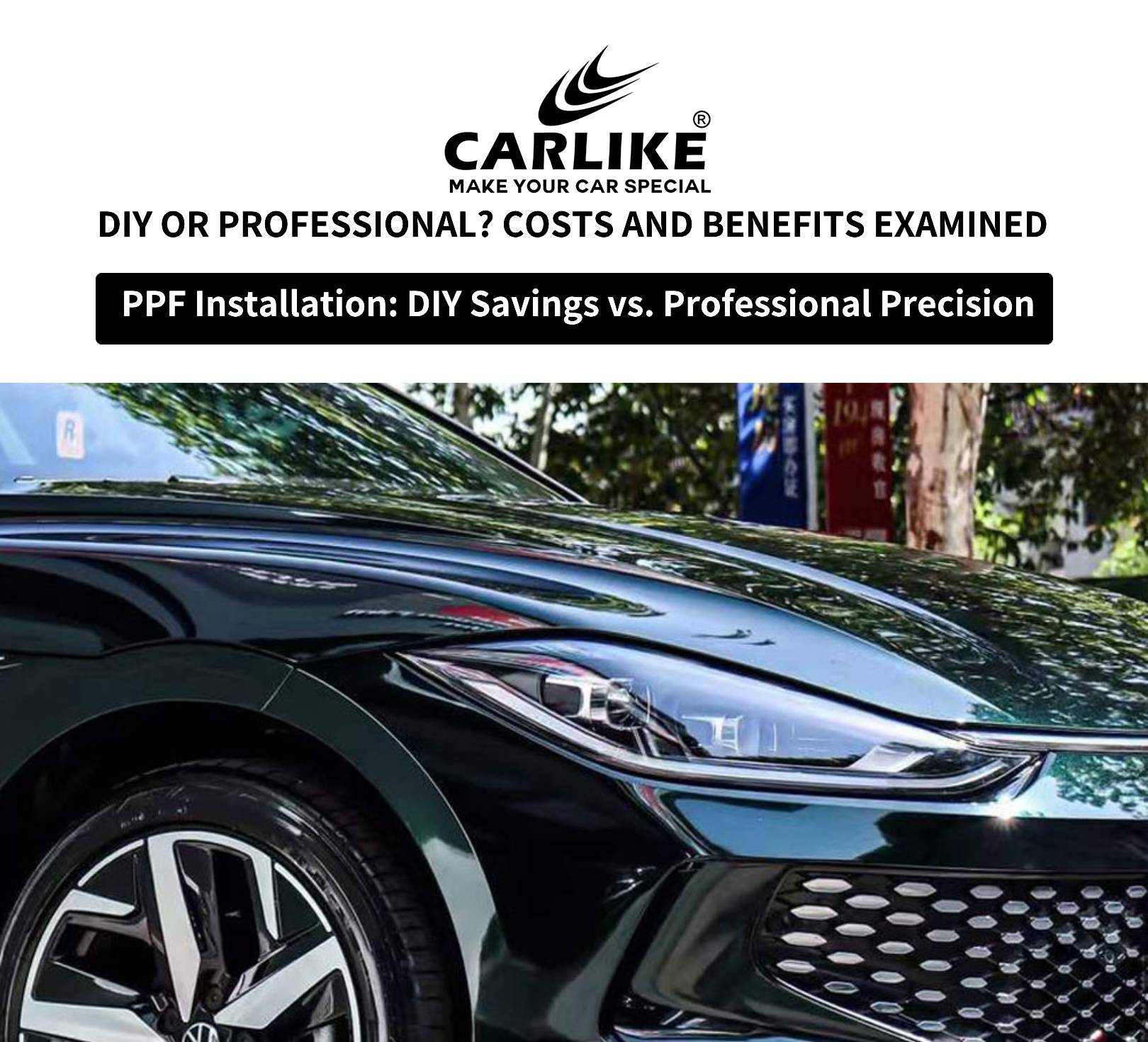The Rising Popularity of Car Vinyl Wraps
The rising popularity of car vinyl wraps is a notable trend in the automotive industry, driven by several factors. Car vinyl wraps offer a cost-effective and versatile alternative to traditional paint jobs, allowing vehicle owners to customize the appearance of their cars with a wide range of colors, finishes, and designs. This flexibility enables frequent changes in aesthetics without permanent alterations. Additionally, vinyl wraps provide a protective layer against minor scratches and UV damage, preserving the car's original paintwork. The ease of application and removal, coupled with growing consumer interest in personalized and unique vehicle aesthetics, has contributed significantly to the increasing demand for car vinyl wraps.
Understanding Different Vinyl Wrap Materials
1. Calendared Vinyl
- Description: Thicker and more rigid than cast vinyl.
- Applications: Suitable for flat or slightly curved surfaces. Commonly used for short-term applications like decals and signs.
- Durability: Less durable and prone to shrinkage over time compared to cast vinyl.
2. Cast Vinyl
- Description: Thinner, more flexible, and conforms well to complex curves and surfaces.
- Applications: Ideal for full vehicle wraps, including areas with curves and recesses.
- Durability: Highly durable and resistant to shrinking, making it suitable for long-term use.
3. Carbon Fiber Vinyl
- Description: Mimics the appearance of real carbon fiber with a textured finish.
- Application: Popular for interior and exterior accents, such as hoods, roofs, and dashboards.
- Durability: Generally durable, with good resistance to weather and UV rays.
4. Chrome Vinyl
- Description: Highly reflective and mirror-like finish.
- Applications: Used for creating eye-catching details or entire vehicle wraps for a high-impact look.
- Durability: Can be more challenging to install and maintain, with potential for scratching and damage.
5. Matte Vinyl
- Description: Non-glossy, flat finish that gives a sophisticated look.
- Applications: Popular for full vehicle wraps, providing a unique, understated appearance.
- Durability: Good durability, though matte finishes can show fingerprints and smudges more easily.
6. Satin Vinyl
- Description: Somewhere between glossy and matte, with a soft sheen.
- Applications: Offers a subtle, elegant finish suitable for full wraps or accents.
- Durability: Durable with easier maintenance compared to matte finishes.
7. Gloss Vinyl
- Description: High-gloss, shiny finish similar to a traditional paint job.
- Applications: Used for full vehicle wraps to give a fresh, polished look.
- Durability: Highly durable and easier to clean, maintaining its shine over time.
8. Brushed Metal Vinyl
- Description: Simulates the appearance of brushed metal with a textured finish.
- Applications: Ideal for creating metallic accents on various parts of a vehicle.
- Durability: Durable and provides a unique look, though it may be more difficult to clean.
How Vinyl Wraps Protect Your Car’s Paint and Finish
Vinyl wraps protect your car's paint and finish by providing a durable, protective layer over the original paintwork. This layer guards against various forms of damage, such as:
1. UV Rays: Vinyl wraps block harmful ultraviolet rays from the sun, preventing paint from fading and deteriorating over time.
2. Physical Damage: They offer a shield against minor abrasions, scratches, and chips caused by road debris, rocks, and other environmental factors.
3. Chemical Exposure: The wrap acts as a barrier against corrosive substances like bird droppings, tree sap, and acid rain, which can damage the paint.
4. Moisture Protection: Vinyl wraps resist moisture, reducing the risk of rust and corrosion on the car's surface.
5. Customizable Aesthetics: Besides protection, vinyl wraps allow for easy customization of your car’s appearance without permanent changes to the original paint.
Overall, vinyl wraps preserve the car's original paint, maintaining its aesthetic and resale value while offering an opportunity for personalization.

Maintaining and Caring for Your Vinyl Wrapped Car
Maintaining and caring for a vinyl-wrapped car involves specific steps to ensure the wrap remains in good condition and lasts as long as possible. Here are some tips to help you take care of your vinyl-wrapped vehicle:
1. Regular Washing
- Frequency: Wash your vehicle every 1-2 weeks.
- Method: Use a gentle, hand-wash method rather than automatic car washes, which can be too harsh.
- Products: Use mild, non-abrasive detergents. Avoid products with strong solvents or alcohol.
- Tools: Use a soft sponge or microfiber cloth to prevent scratches.
2. Drying
- Technique: Air dry or use a clean microfiber cloth to gently pat the surface dry.
- Avoid: Don't use abrasive towels or brushes that could damage the wrap.
3. Avoid High-Pressure Washing
- Pressure Level: If using a pressure washer, keep the pressure below 2000 psi.
- Distance: Maintain a distance of at least 12 inches from the wrap.
- Angles: Avoid spraying directly at the edges of the wrap to prevent lifting.
4. Protect from the Elements
- Sun Exposure: Whenever possible, park in the shade or use a car cover to protect the wrap from UV rays, which can cause fading.
- Extreme Temperatures: Try to avoid exposing the vehicle to extreme temperatures for prolonged periods.
5. Spot Cleaning
- Bird Droppings, Bugs, and Tree Sap: Clean these off as soon as possible to prevent them from hardening and becoming more difficult to remove.
- Method: Use a gentle cleaner and a soft cloth to wipe away contaminants.
6. Waxing and Polishing
- Products: Use waxes and polishes specifically designed for vinyl wraps.
- Frequency: Apply a protective wax coating every few months to maintain the wrap’s appearance and protect it from the elements.
7. Avoid Harsh Chemicals
- No Abrasives: Avoid abrasive cleaning agents and rough cleaning tools.No Solvents: Steer clear of solvents, oils, and fuel spills.
8. Repairing Damage
- Small Tears or Scratches: For minor damage, consider vinyl repair kits available in the market.
- Professional Help: For significant damage, it’s best to consult a professional to either repair or replace the affected section of the wrap.
9. Storage
- Indoor Storage: If possible, store the vehicle indoors to minimize exposure to the elements.
- Cover: Use a breathable car cover if indoor storage is not available.
10. Regular Inspections
- Routine Checks: Periodically inspect the wrap for any signs of lifting, peeling, or damage.
- Immediate Action: Address any issues promptly to prevent further damage.
By following these tips, you can maintain the vibrant look and longevity of your vinyl-wrapped car, ensuring it stays in excellent condition for years to come.





